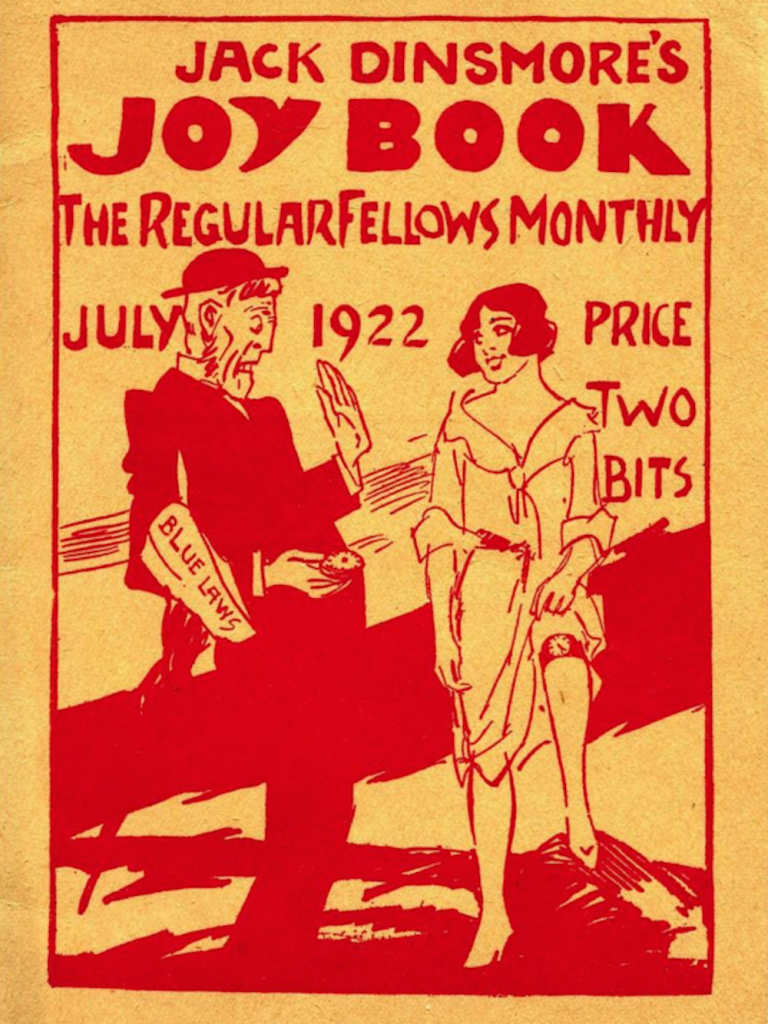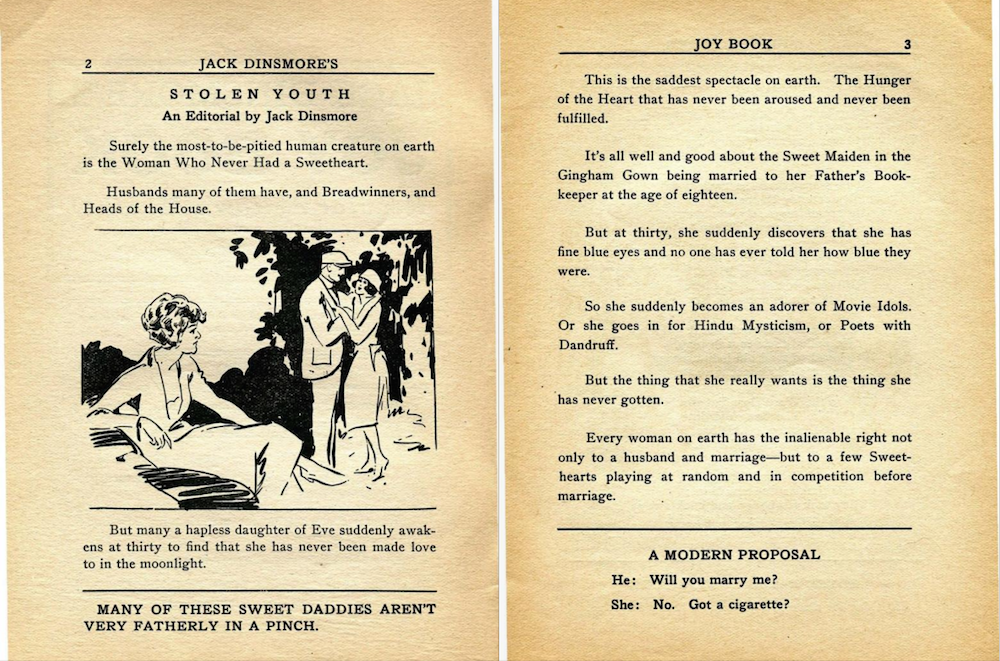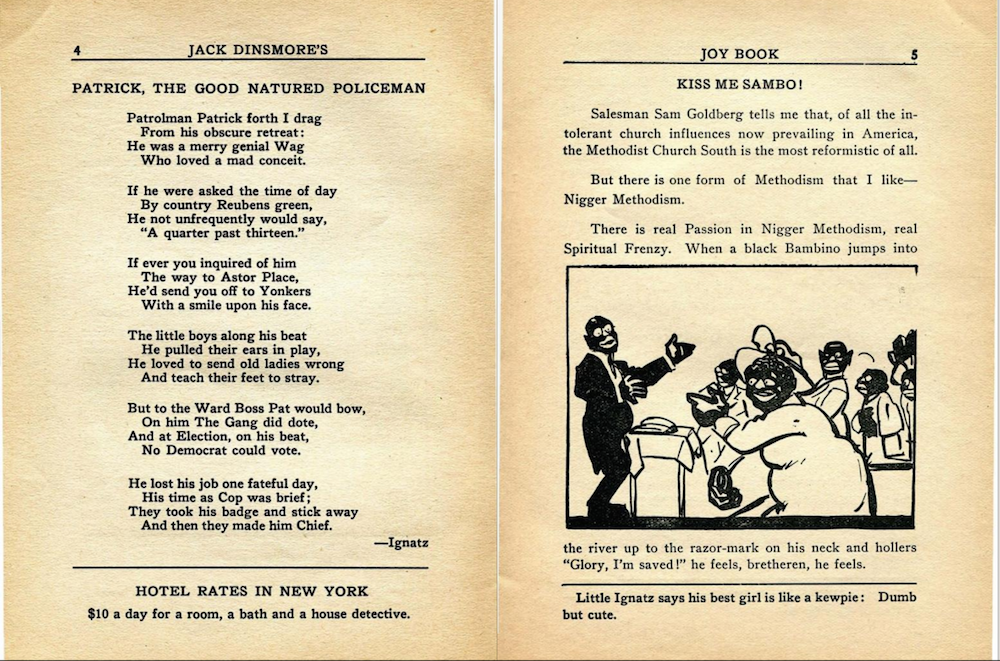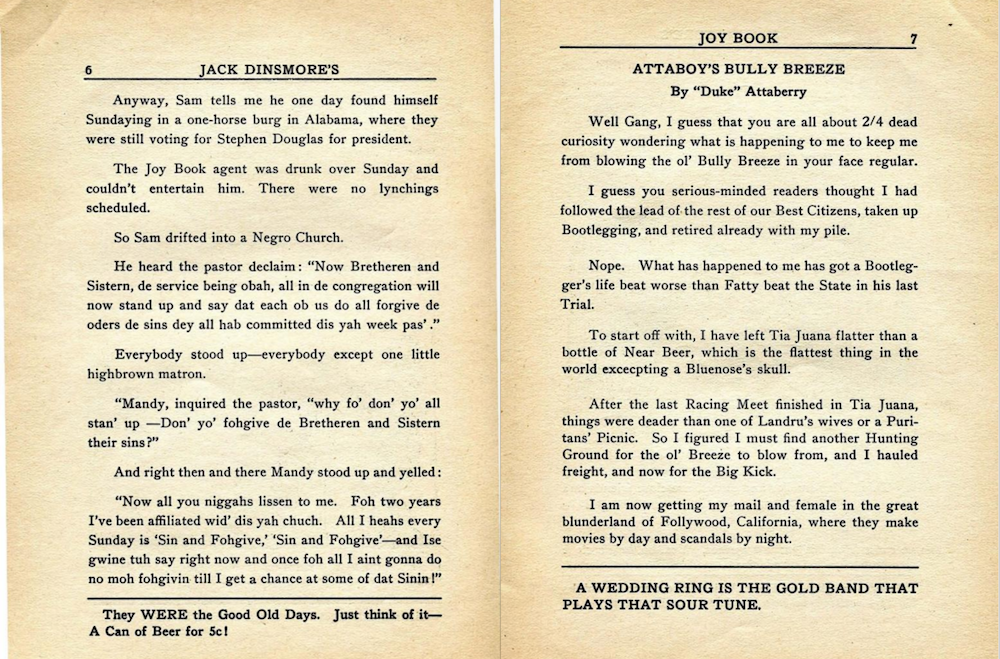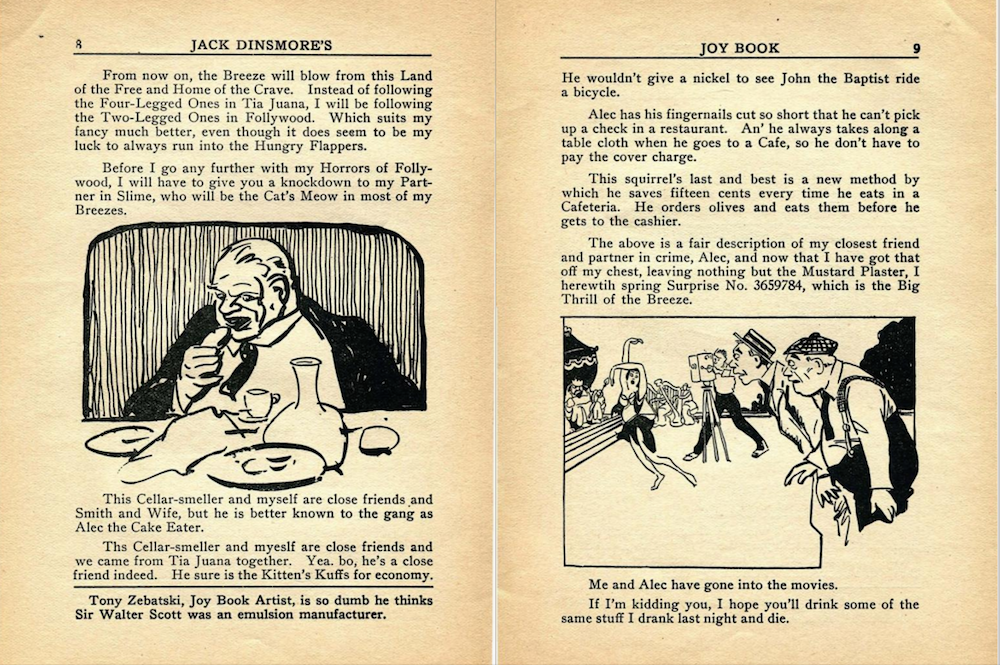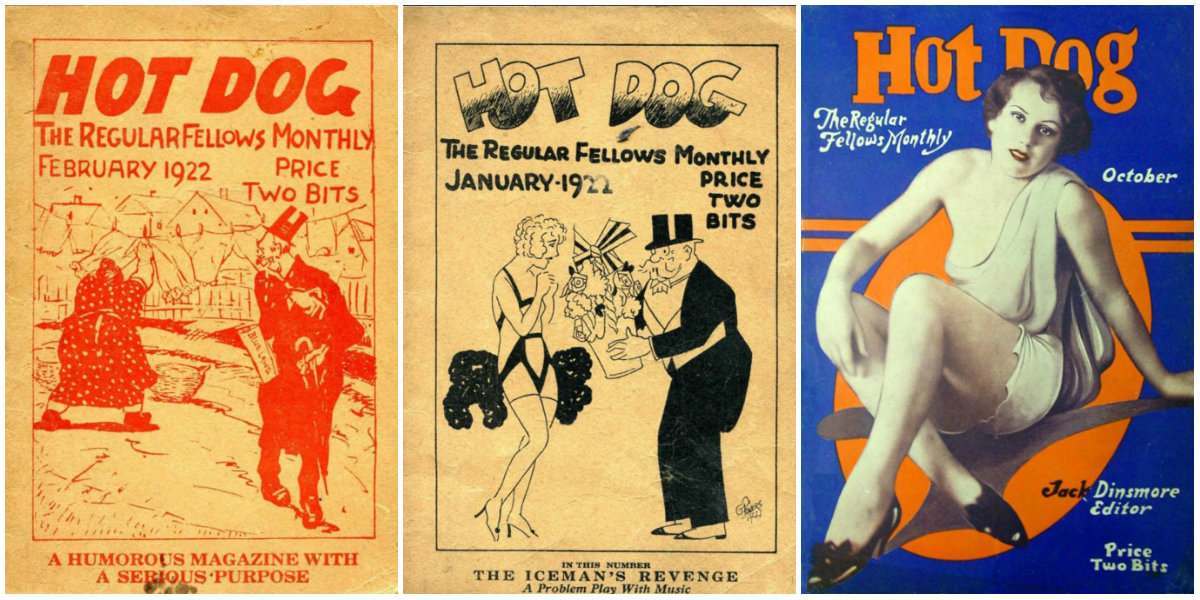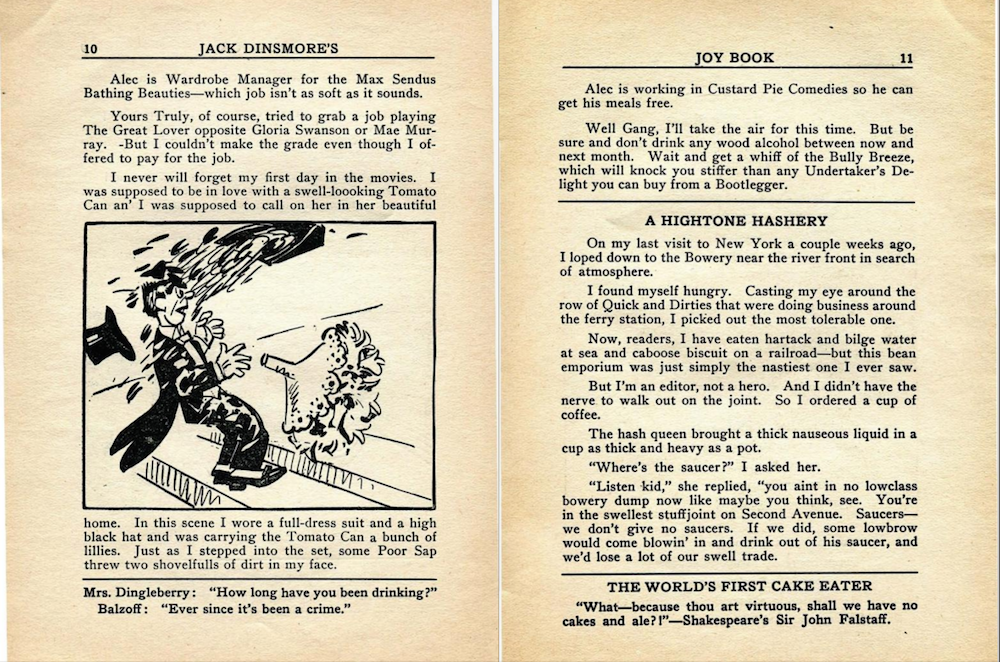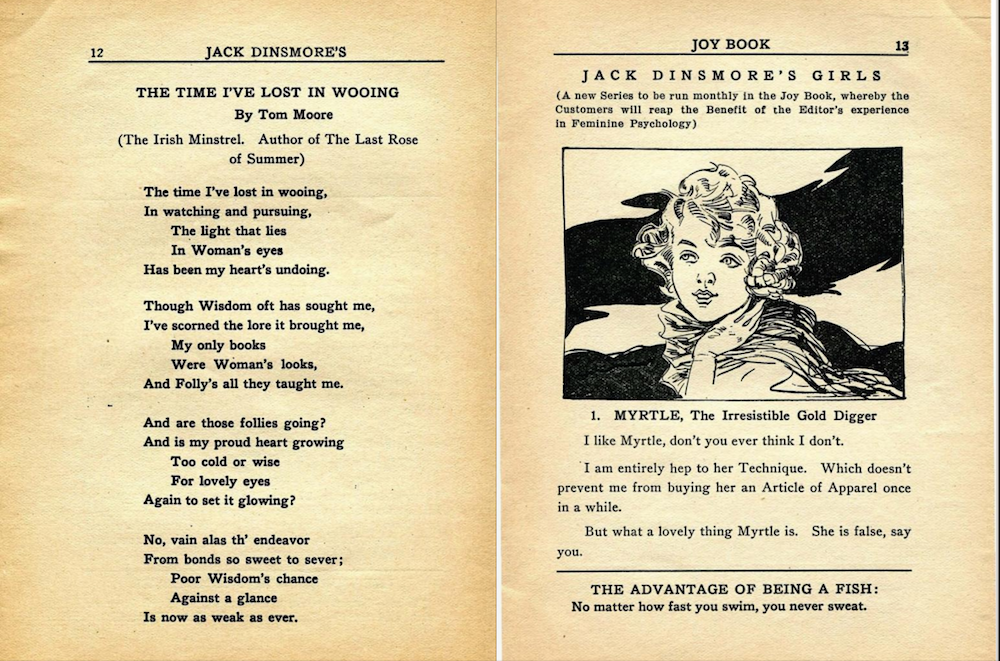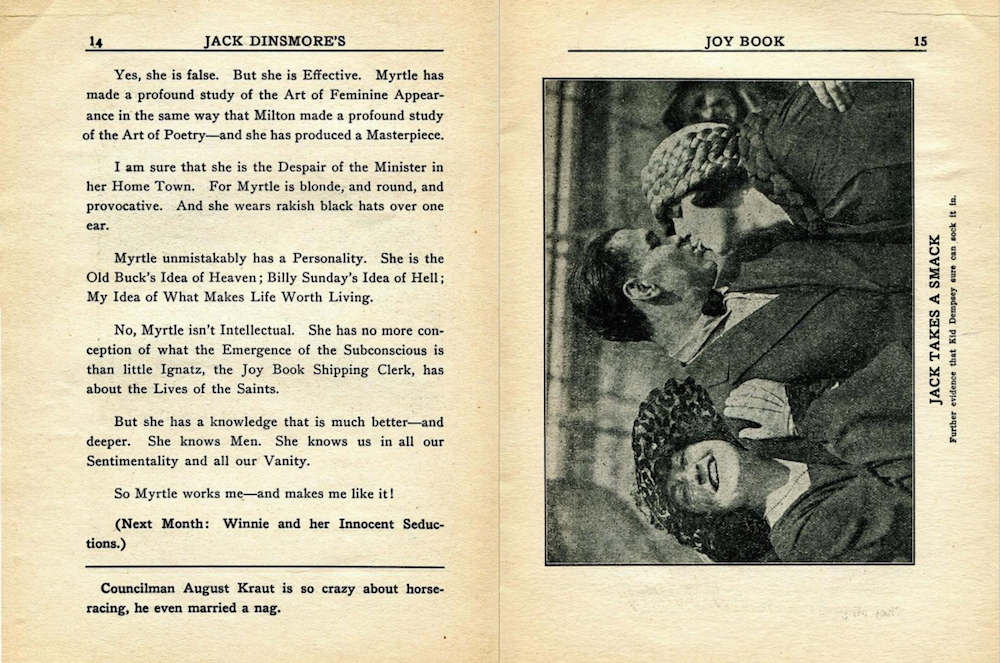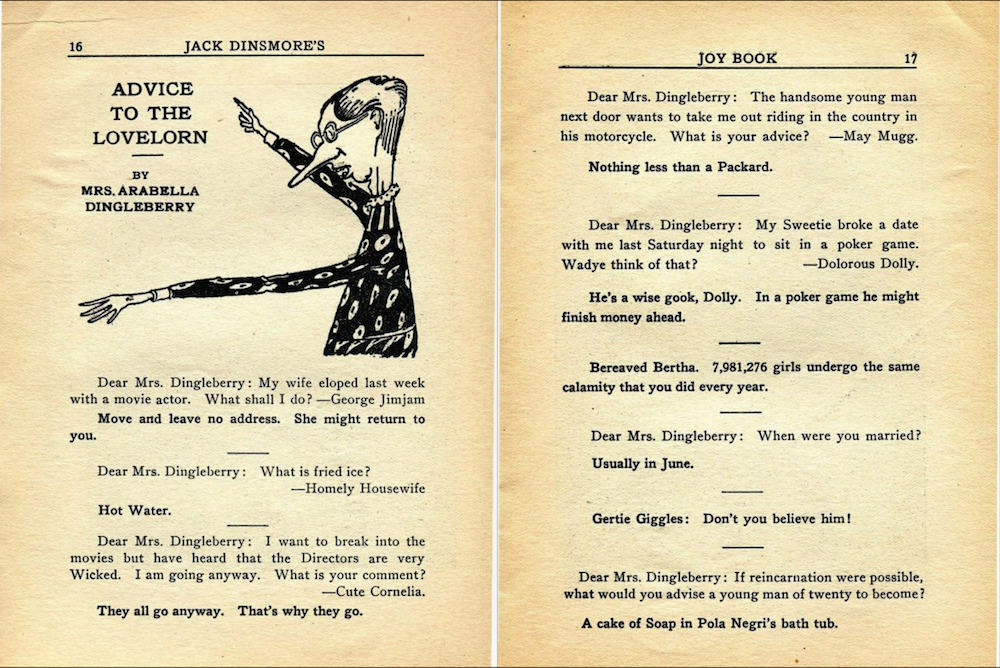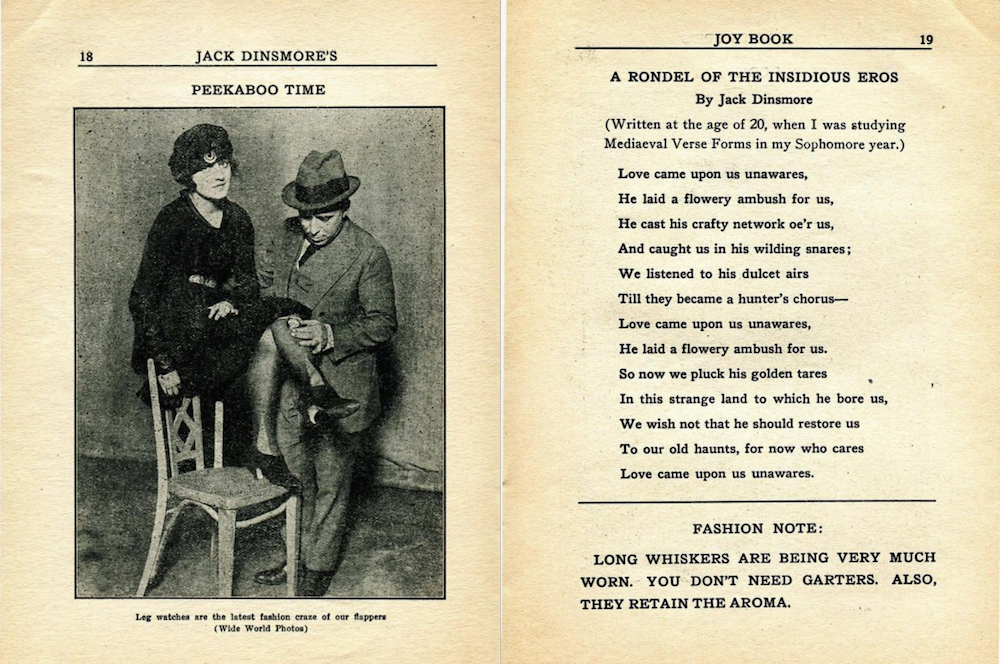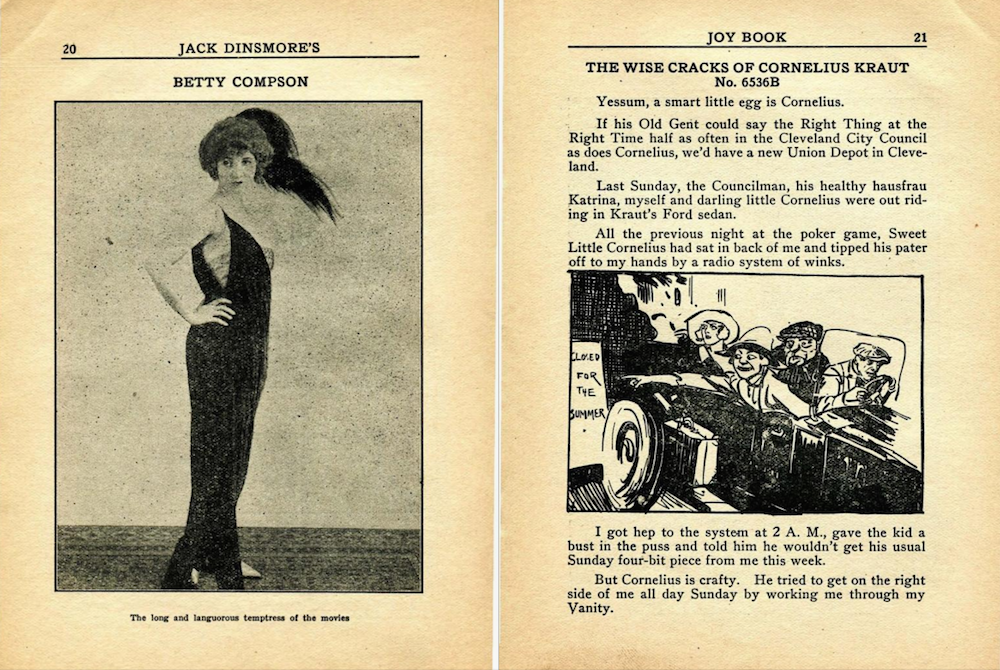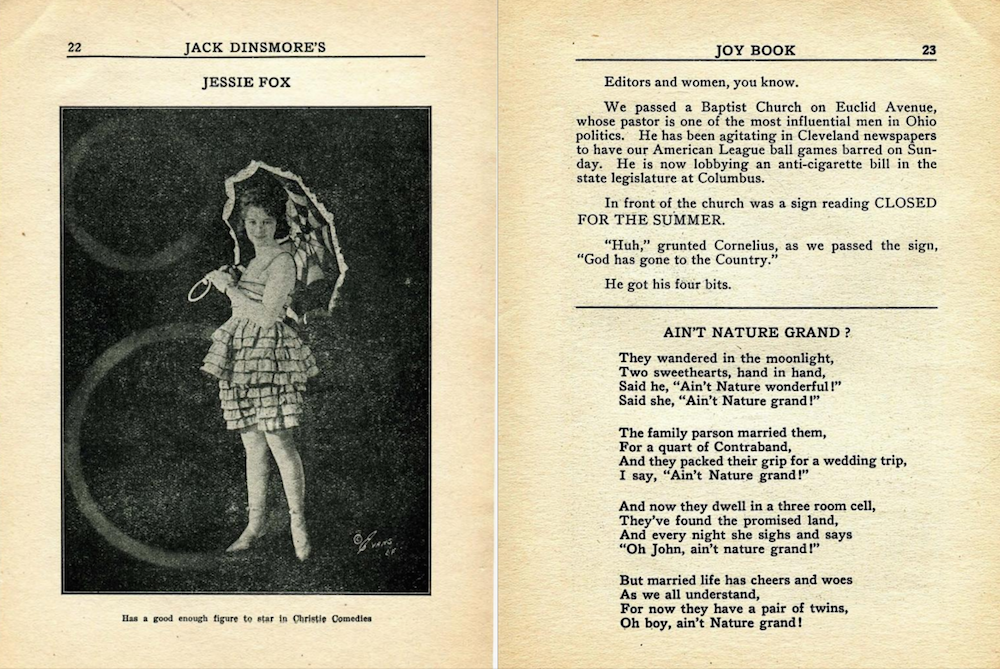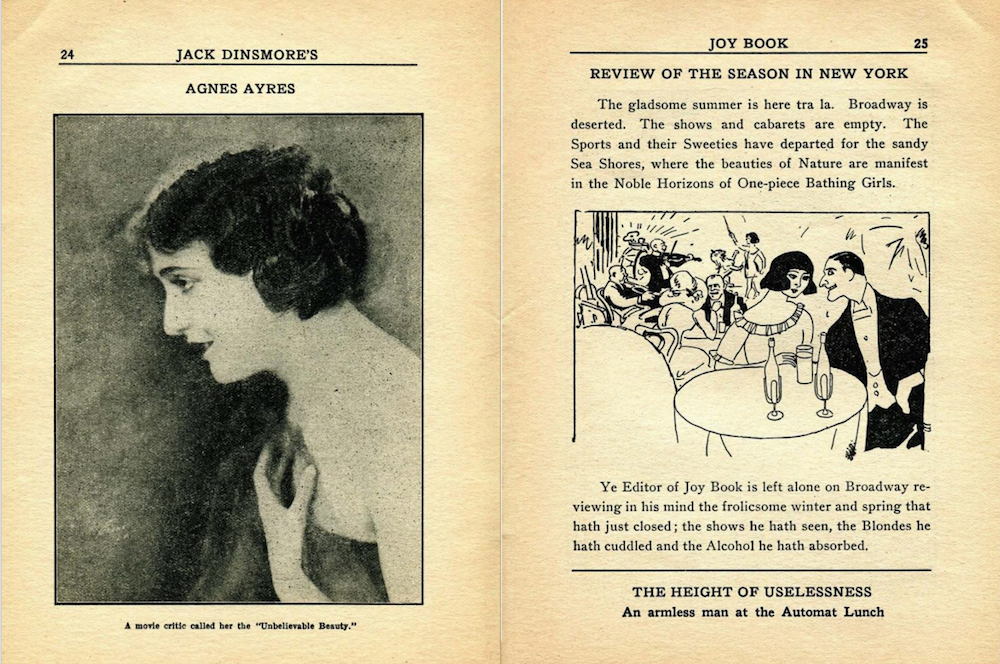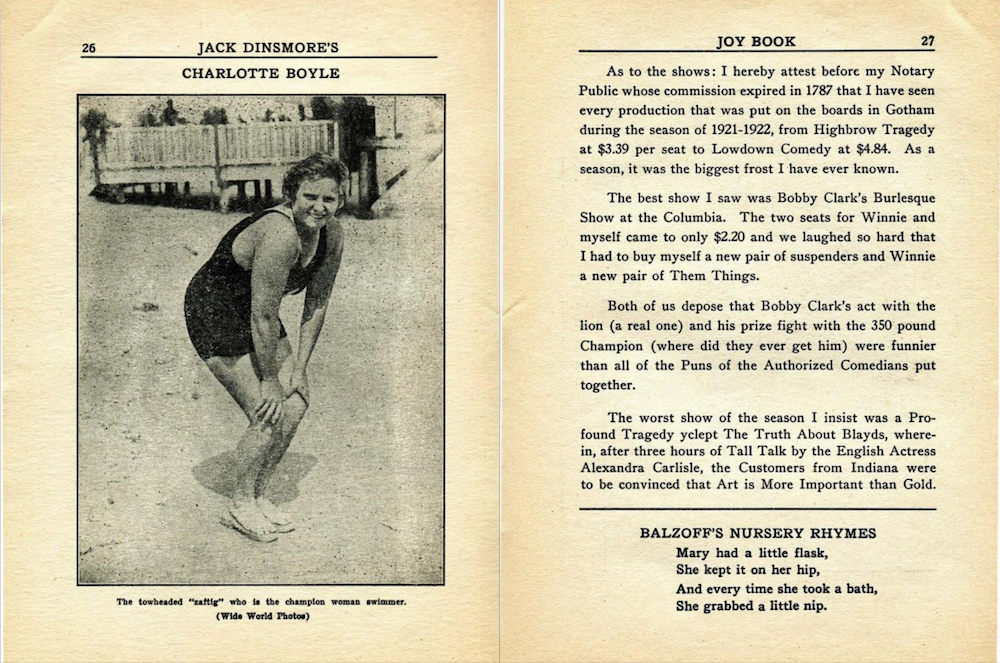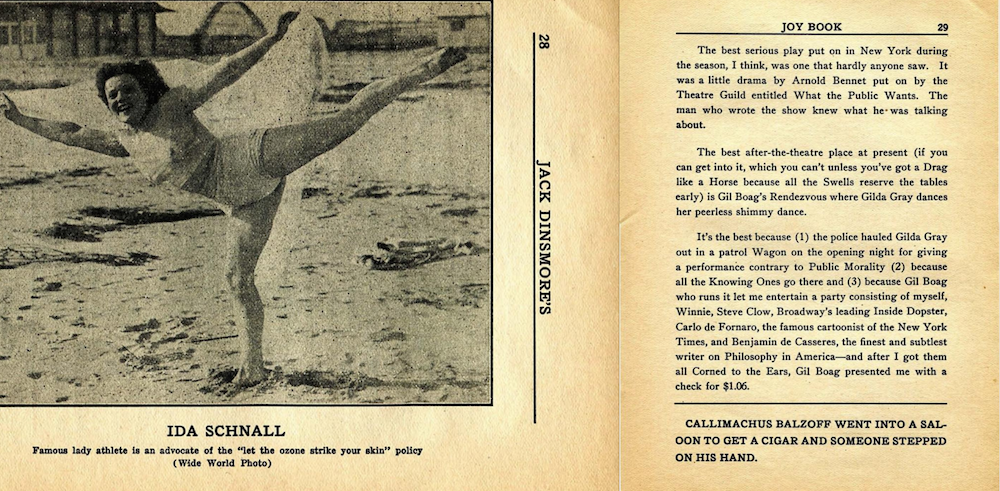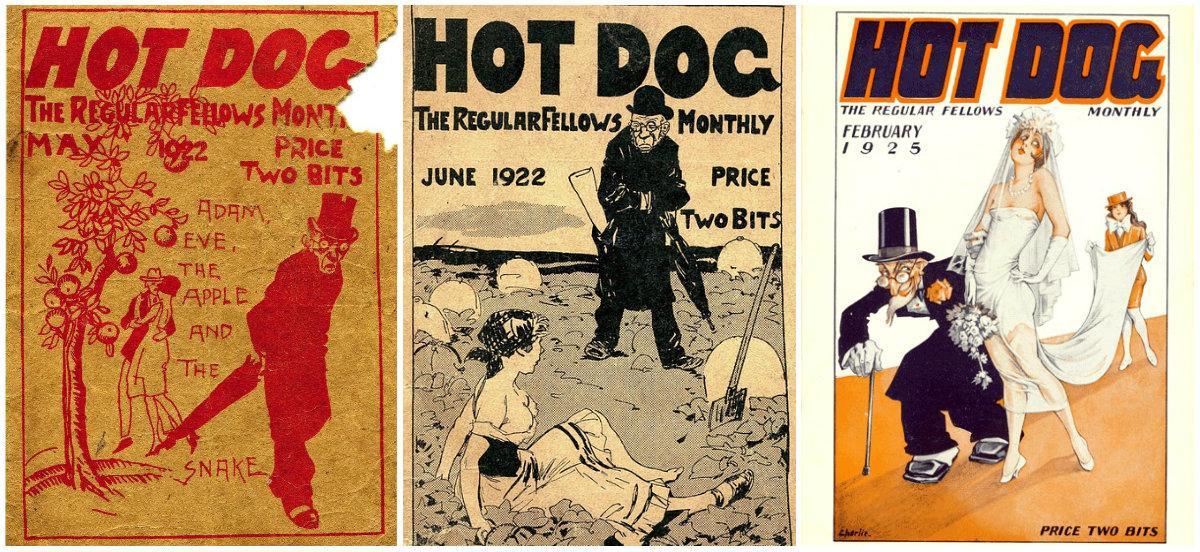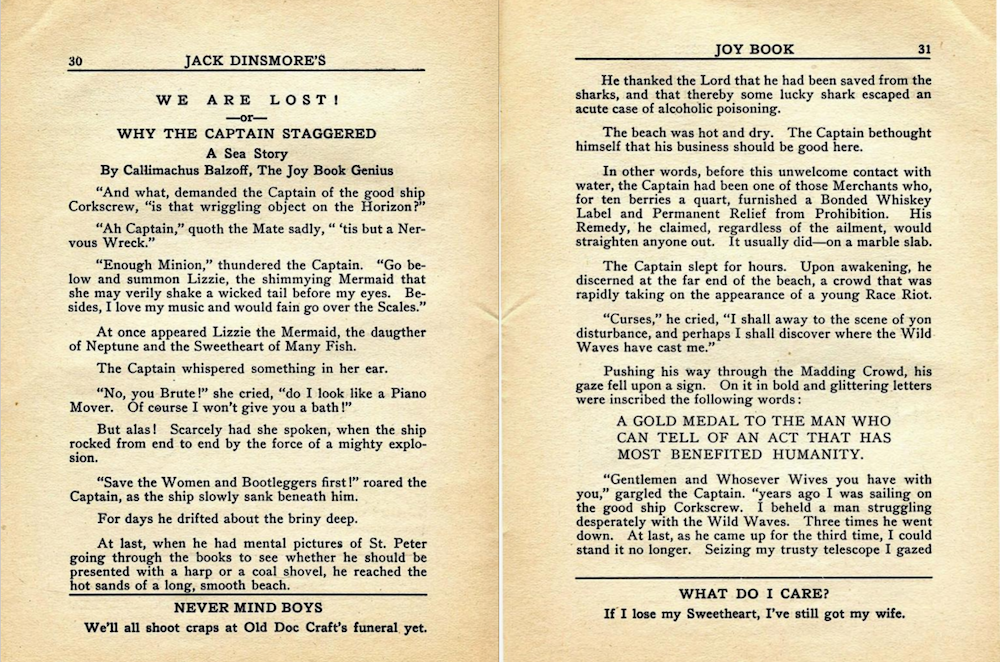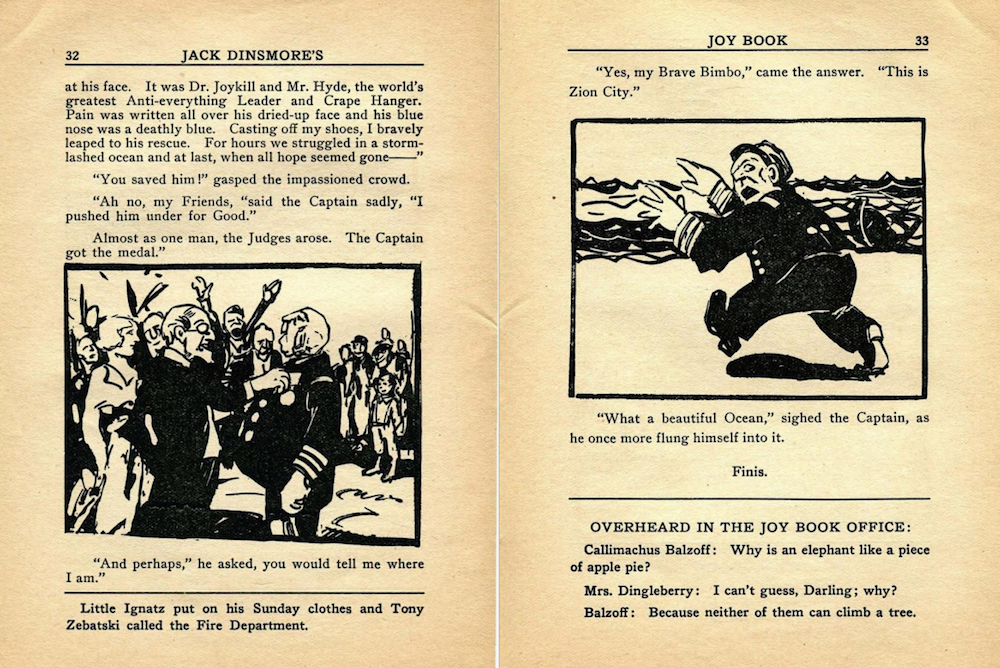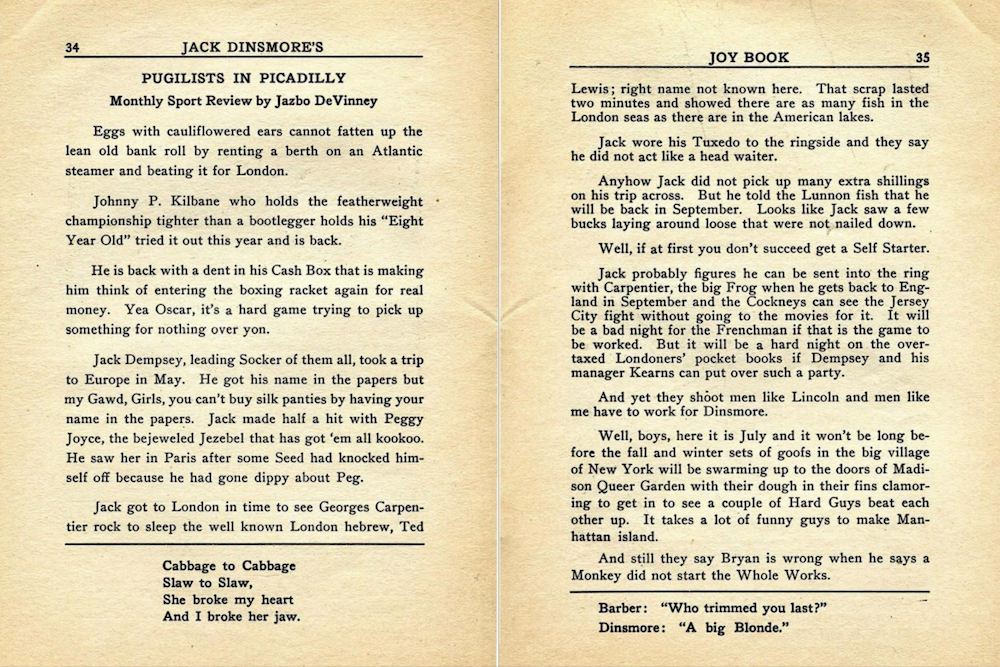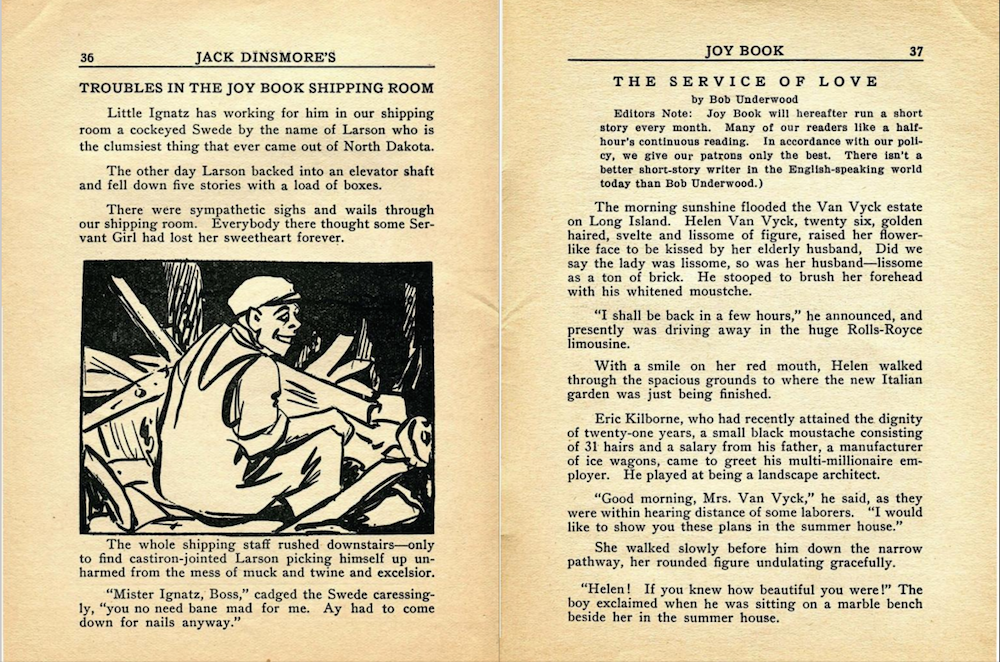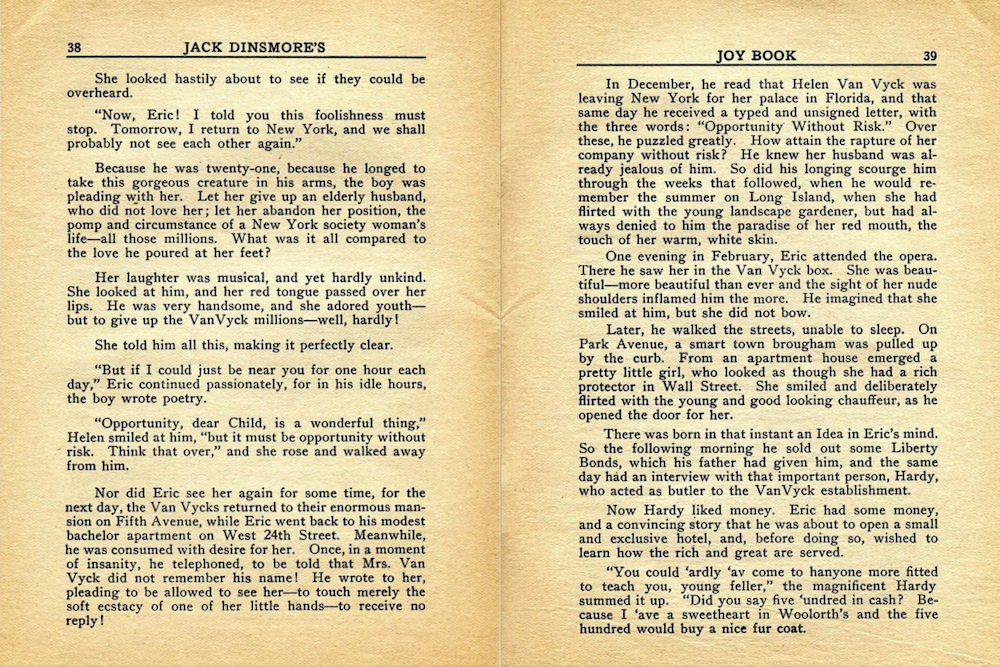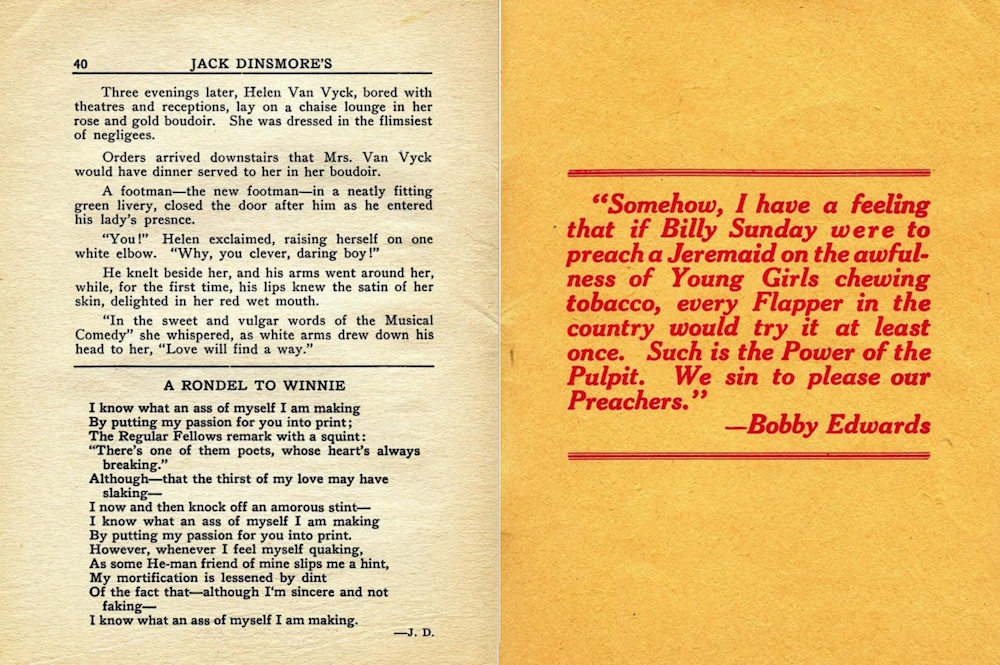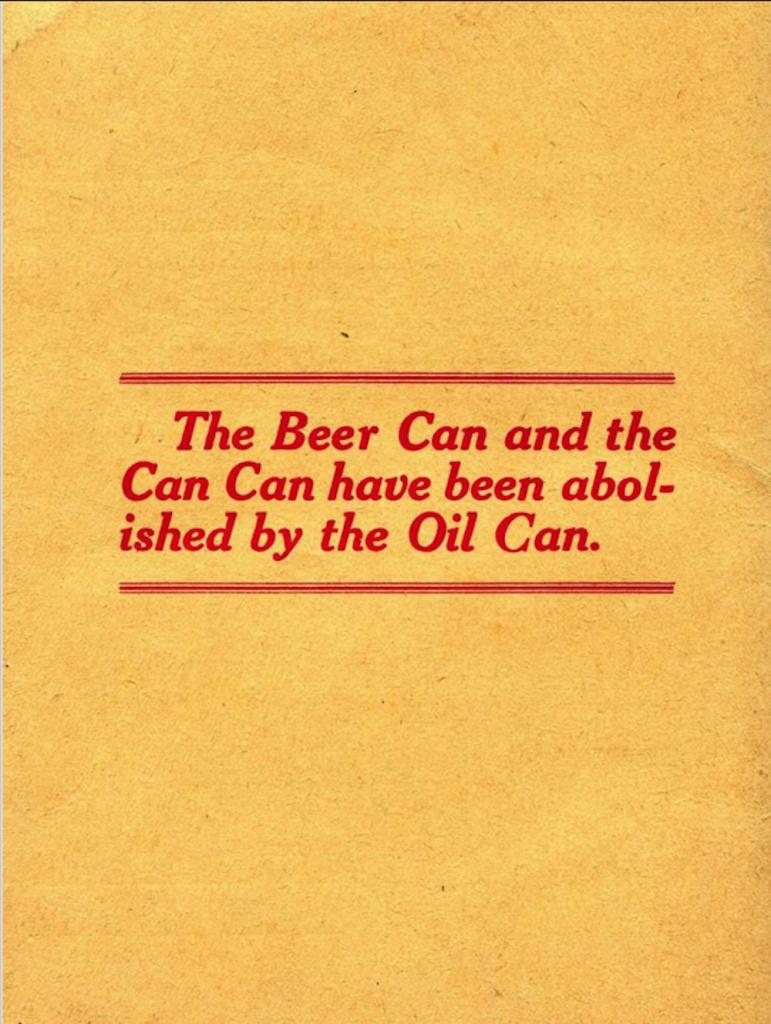Jack Dinsmore’s Joy Book, The Regular Fellows Monthly was published by The Merit Publishing Co., Cleveland, Ohio, in July 1922. In parts it’s aspirational Playboy, smutty Tijuana Bibles and a dash of John Wilkes’ tabloid vigour. It is also misogynistic, racist and very much of its time.
The Blue Laws pamphlet poking from the irregular fellow asking the dame for the time were / are designed to enforce religious standards, such are preventing stores from opening and bars from selling booze on Sundays, the Christian day of rest and reflection.
…in 2000, Ohio Governor Bob Taft signed a law that permitted alcohol sales in sports arenas as early as 11:00 AM on Sundays. One critic of Taft’s action commented, “My golly sakes. Before noon? People should be in church on their knees praying then, not drinking,” illustrating the continued support of certain blue laws in the twenty-first century.
Surely the most-to-be-pitied human creature on earth is the Woman Who Never Had a Sweetheart. Husbands many of them have, and Breadwinners, and Heads of the House. But many a hapless daughter of Eve suddenly awakens at thirty to find that she has never been made love to in the moonlight…
So she suddenly becomes an adorer of Movie Idols. Or she goes in for Hindu Mysticism, or Poets with Dandruff.
Edgy humor? Or just racist?
Pulp International tells us more:
Hot Dog was a humor monthly published out of Cleveland, Ohio during the 1920s and 1930s, and distributed throughout the Great Lakes states. It began as little more than a pamphlet, but quickly expanded to the digest you see above. It’s formula for success? Largely, it seemed to be stupid ethnic jokes and bawdy limericks mixed with photos of showgirls and actresses. At least, that’s mostly what we got out of this October 1931 issue. But thanks to a little research, we discovered Hot Dog also had a serious side, positioning itself as a foe of prohibitionists and moral watchdogs of every stripe.
You’ll notice that editor Jack Dinsmore gave himself billing on the cover. Dinsmore was a pseudonym. We learned this from a rather beautiful 1996 New York Times article written by a woman who goes searching for traces of a father that died when she was seven. Her father was Jack Dinsmore, and the author is shocked to discover he edited Hot Dog, a magazine that, as the Great Depression wore on, became more and more insulting toward Jews even though Dinsmore was Jewish. But we all know nothing makes a man compromise himself more quickly than the threat of joblessness, and in 1930s America that possibility would have been staring an unimportant Midwestern editor—and millions more people barely hanging on—right in the face.
We interrupt this book to bring you other covers and work by Jack Dinsmore:
Mary Gordon writes in the NYTimes:
My father died when I was 7 years old. But in all the time that I thought about having a father, either a living father or a dead one, the first thing I thought of was that he was a writer.
I had to keep learning new things about the kind of writer he was. At 8, I knew he’d written poetry, like me. We were dynastic. At 10, I found an ultra-orthodox magazine, Catholic International, that he’d edited during the war. I was the daughter of a writer-saint. Then at 12, I found a magazine he’d edited in the 20’s, before his conversion from Judaism. It was called Hot Dog; it was billed as a humor magazine, but it had dirty pictures.
American Humor Magazines and Comic Periodicals tells us:
Hot Dog: One of the jollier and sexier of the skeptical regional humorous commentators. Jack Dinnsmore was editor of Hot Dog throughout its run in the 1920’s. The Regular Fellows Monthly was a twenty-five-cent digest-size publication 6″ by 9″ and thirty-four pages, in breezy slang. . . . Humor included limericks, short gags and one-liners and some longer jokes of the comic tough-guy type. . . . By November 1933 Dinnsmore was in New York City . . . and had cheapened both his paper and his image with more nudie photos and cartoons and somewhat increased political content.
Would you like to support Flashbak?
Please consider making a donation to our site. We don't want to rely on ads to bring you the best of visual culture. You can also support us by signing up to our Mailing List. And you can also follow us on Facebook, Instagram and Twitter. For great art and culture delivered to your door, visit our shop.
